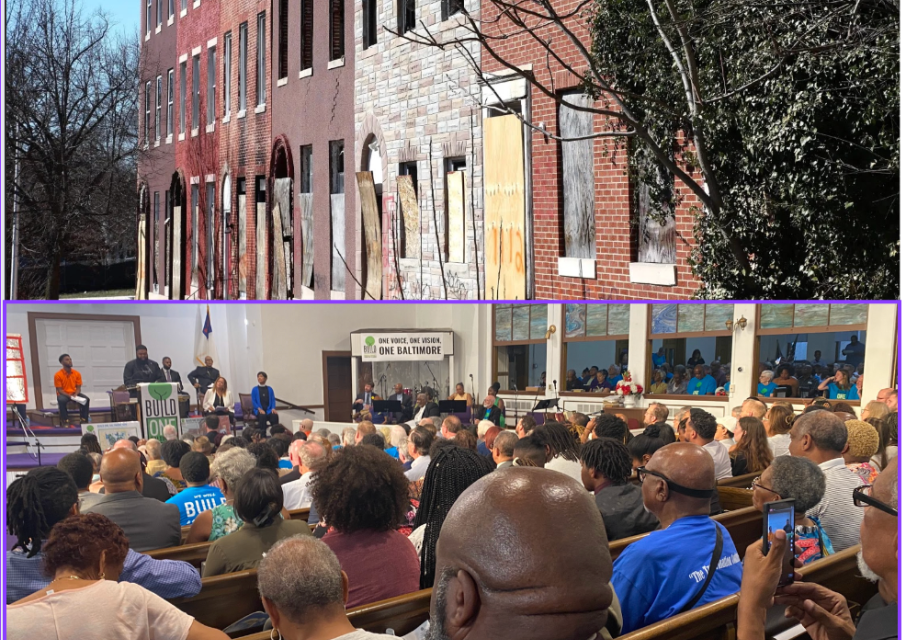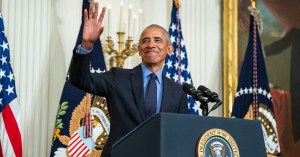By Megan Sayles, AFRO Business Writer, msayles@afro.com
And
By Tashi McQueen, AFRO Political Writer, tmcqueen@afro.com
This past July, Baltimoreans United In Leadership Development (BUILD), the Greater Baltimore Committee (GBC) and Mayor Brandon M. Scott announced a combined effort to tackle the city’s decades-long vacant housing crisis.
As of February 2022, the Baltimore City Department of Housing and Community Development reported that Baltimore had nearly 15,000 abandoned properties—1,245 of which are owned by the city. The crisis is a $7.5-billion problem.
On Dec. 11, Scott and the organizations’ leaders are set to host a public action meeting at Greater Harvest Baptist Church in Southwest Baltimore to update residents on their strategy to finance the rehabilitation of these homes.
The Mayor’s Office declined to comment on the initiative ahead of the public action meeting.
“We announced that we were hiring two entities to vet our process for the finances but also for the legal process of acquiring the properties,” said George Hopkins, co-chair of BUILD. “GBC, BUILD and the mayor’s team came with these analyses, and that’s where we are right now—we’re making sure our plan is viable and has been tested and scrutinized so that our vision is actually able to be implemented and to bring real outcomes. Our hope is to have that report finalized by Dec. 11 and then we can communicate the outcomes of that analysis.”
Vacant houses can be a danger to the vitality of communities, attracting crime, decreasing the property value of homes nearby and having an increased risk of fires. A 2022 study conducted by the Johns Hopkins 21st Century Institute discovered that abandoned housing is directly and indirectly costing Baltimore nearly $210 million each year.

Photo credit: AFRO Photo / Tashi McQueen Abandoned homes: AFRO Photo / James Fields
Of the $7.5 billion needed to end this crisis, $2.5 billion is required in public funding at the state, city and federal levels.
“There are four focus areas that we agreed to look at. First, how do you actually finance a much larger investment to tackle the problem? The second is about the best way to acquire and dispose of properties, whether it’s public or privately owned,” said Mark Anthony Thomas, president and CEO of GBC. “Third, a lot of community development groups are actually best-positioned to develop their neighborhoods so how do we ensure they have the resources and support they need? Last is if we amp up development and construction, we need an entire workforce ecosystem to be supportive of that.”
The last time GBC, BUILD and a Baltimore mayor teamed up was 35 years ago, for the creation of the CollegeBound Foundation, of which Scott is an alumnus. Hopkins said the work of BUILD’s construction organization, ReBUILD Metro, in East Baltimore provided a model for how the city could confront the crisis without displacing local residents.
“The mayor saw the approach of it, how it engaged with the local community, how it didn’t displace local residents and how it brought beneficial gains to the neighborhood, from eliminating vacants to bringing wealth to the local homeowners to a sustained decrease in violence,” said Hopkins. “He saw all of those successes and wanted to see that be replicated.”
GBC, BUILD and the mayor are attempting to scale the work of ReBUILD Metro to address vacancies citywide. The strategy involves a block-by-block approach.
“It’s not just fixing a house in one area and then going to another neighborhood and fixing a house there because when you do that, you are rebuilding a house within a depressed housing market,” said Hopkins.
The block-by-block method ensures that as vacant houses are rebuilt they will gain value. For Thomas, the most challenging aspects of this approach will be acquiring the properties and securing the funding.
“Once the public investment is determined, you literally have to leverage private capital that for decades has neglected Baltimore,” said Thomas. “That becomes the focus when we get past the public investment needs.”
Megan Sayles and Tashi McQueen are Report For America corps members.
The post BUILD, Baltimore Mayor Brandon Scott and Greater Baltimore Committee partner to end vacant housing crisis appeared first on AFRO American Newspapers .










